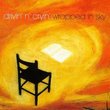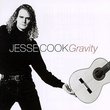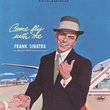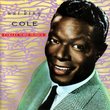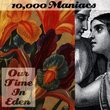| All Artists: Terry Riley Title: Terry Riley: A Rainbow In Curved Air Members Wishing: 8 Total Copies: 0 Label: Sony Release Date: 10/25/1990 Genres: Dance & Electronic, Jazz, Special Interest, Classical Styles: Ambient, Techno, Avant Garde & Free Jazz, Experimental Music, Chamber Music, Historical Periods, Classical (c.1770-1830), Modern, 20th, & 21st Century Number of Discs: 1 SwapaCD Credits: 1 UPCs: 074640731525, 2605000031290 |
Search - Terry Riley :: Terry Riley: A Rainbow In Curved Air
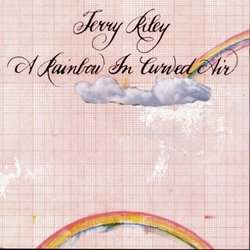 | Terry Riley Terry Riley: A Rainbow In Curved Air Genres: Dance & Electronic, Jazz, Special Interest, Classical
No Description Available No Track Information Available Media Type: CD Artist: RILEY,T. Title: RAINBOW IN CURVED/POPPY NOGOOD Street Release Date: 03/14/1988 |
Larger Image |
CD DetailsSynopsis
Product Description No Description Available No Track Information Available Media Type: CD Artist: RILEY,T. Title: RAINBOW IN CURVED/POPPY NOGOOD Street Release Date: 03/14/1988 Similarly Requested CDs
|
CD ReviewsImportant early electronic minimalism DAC Crowell | 04/04/2000 (5 out of 5 stars) "That subject pretty much says it all. This pair of pieces sees Terry Riley during the initial period of his experiments with tape delays and electronic organs, where he began to create long, flowing improvisational tapestries of repeating periodic forms. If you're familiar with Indian music, particular Karnatic music, you'll find this especially fascinating, as there's a definite parentage from the Indian subcontinent to this style. The title work is a gentle, melodic, flowing piece which swirls around and around, sort of like some candy-colored psychedelic dervish dance. But the other piece, "Poppy Nogood and the Phantom Band", is a dark and delicious work, with Riley adding his superb sax (very shenai-influenced, it should be noted) playing to the mix along with tense organ drones and shocking, abrupt shifts of tone. A great work to play for those who dismiss minimalism as bland repetitive background music! This is a truly important release, and also an excellent introduction to this important period in Terry Riley's output." How this record effected me. Christopher Browne | Sioux Falls, SD | 02/21/1998 (5 out of 5 stars) "It was winter, 1969, Great Barrington, Vt. I was visiting my girlfriend. I arrived the night before, from Connecticut, exhausted, jealous, foolish... in the morning, she left in the shadows for the shower. I sat of the edge of the bed and turned on her record player. It cycled and the arm dropped down on Rainbow in Curved Air. I opened the curtains with a yank and the sky was FULL of falling white snow. The music began. In two weeks our affair would be over, but the music of that moment will always be with me. Perhaps the most perfect moment of my life. Chris Browne END" A landmark release rubidium84 | Ft. Calhoun, NE | 12/03/2002 (4 out of 5 stars) "This is another one of those records that come out very rarely and change the face of music. It has been said by my fellow reviewers that this record basically started the trance/new wave/techno scene. This record also premiered the "Time-lag accumulator", two Revox reel-to-reel tape recorders wired together in such a way as to create a continuous loop of sound. This was the machine that Fripp and Eno used on their groundbreaking "(No Pussyfooting)" album.Listening to the record's first track is like watching water boil, or a hive of bees. It is both constantly changing while also being completely static. The structure is impeccable, reminding one of the fugues of Bach at times. And the keyboard sounds that Riley chooses are some of the most interesting that I've ever heard, especially the "Rockschichord" that comes in at around 10:00.The first track presents the sunny, happy side of Looping; in the second we hear a more disturbing presentation. You first hear the ominous sound of Riley's looped saxophone creep out of the speakers, but that is gradually overtaken by a dark organ drone. Throughout the next twenty minutes the saxophone fades in and out, but the drone remains constant. And at the end, when your head is completely lost in the music, the drone stops - and the silence that ends the CD is more shocking than the loudest discord.I recommend this CD to anyone who is in on the current techno-trance scene, so they can hear where the movement began."
|

 Track Listings (2) - Disc #1
Track Listings (2) - Disc #1


